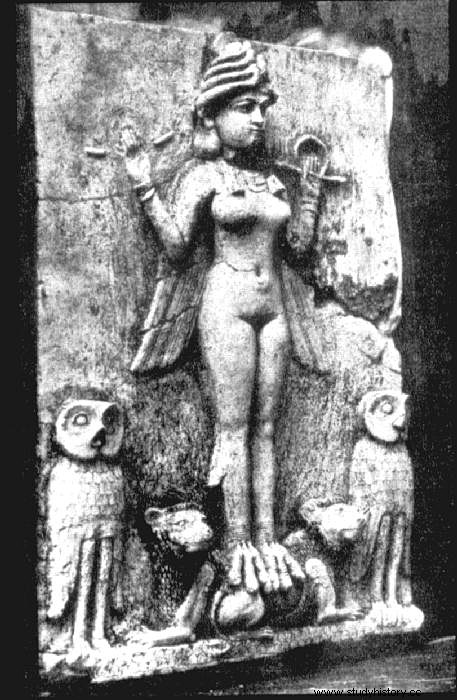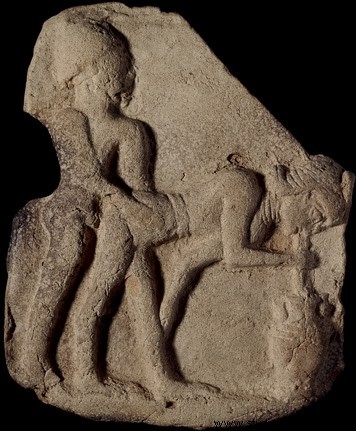The Sumerians granted women a series of rights that, on occasions, we have not seen again until the beginning of the 20th century. One of the most prominent was the right to receive an inheritance and, furthermore, to receive it in the same amount as her male brothers. This detail caused problems in the event that the family owned some type of prosperous business, since the possible children of the sisters annoyed the brothers. To avoid this, the sister on duty was sent to a sacred precinct to serve as a Naditu priestess. . A Naditu (in Sumerian “barren ”) was much like a Christian nun today.

In some cases they had to live cloistered in the Giparu , the building where the high priestess resided, and in other cases, although they were allowed to leave the sacred precinct, they were not allowed to attend certain public acts and, above all, they were prohibited from having children. Between cities and sacred precincts there were differences about the restrictions to which they were subject, but in general, the most common was to remain virgins . In this way, not being able to procreate, the part of the inheritance received by her daughter returned to her brothers. Interestingly, and due to the difference in criteria between the different temples, in some of them they were allowed to adopt and even have sex. How did they manage to have sex without children? Well, this time we are not going to “anal -izar” the problem and we will leave it to the imagination of the reader, since we are in children's time.

These curious laws produced interesting cases, which sometimes seem very modern to us and never cease to attract our attention. One of them, singular and illustrative, was found on a tablet with a judicial resolution found in the excavations of the city of Larsa . Apparently, a girl, the daughter of a wealthy baker, had been sent as Naditu to the Temple of Ishtar in that city. Over the years, and thanks to her business skills, she grew rich and not only adopted a younger priestess as her daughter, but she also disinherited her two brothers. These, furious to see that the "prize" escaped them, denounced her sister. She presented witnesses who declared that her brothers had sent her to the temple without any means of support, which violated the law, since a Naditu had to be provided with trousseau and food throughout her life. Witnesses claimed that the poor girl, upon arriving at Giparu, had had to ask for a loan “even to have a bowl and a spoon ”. The judge, in view of what was declared, not only ruled that she had the right to adopt whoever she wanted and leave her property to that person, but even to disinherit her relatives, who remained composed and without inheritance.
It sounds like a Dickens novel, but it is quite true that, as Oscar Wilde said, life imitates art.
Contributed by Joshua BedwyR author of In a Dark Blue World
